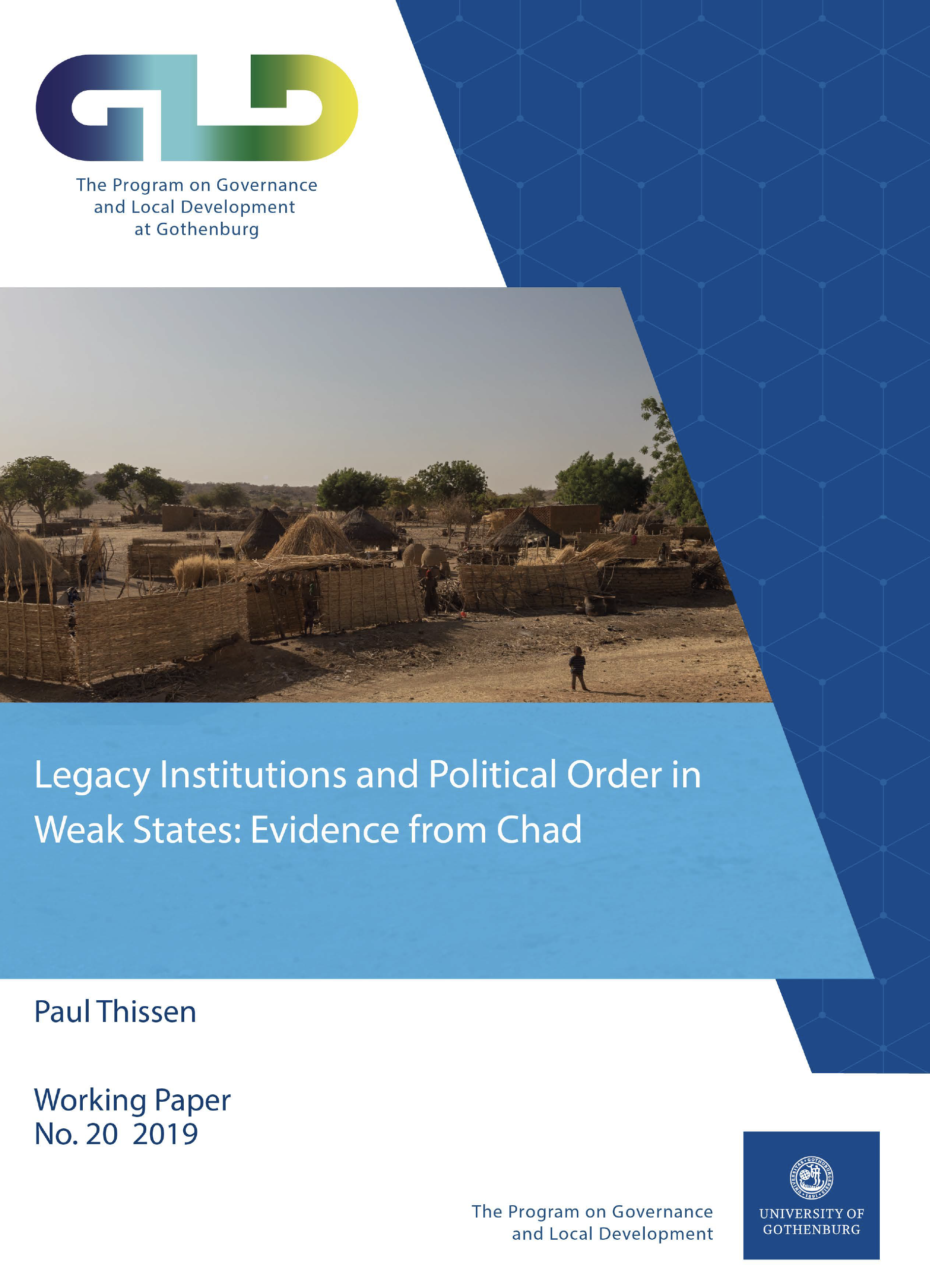No.20 Legacy Institutions and Political Order in Weak States: Evidence from Chad
Paul Thissen
Abstract
This paper investigates variation in the ability of non-state institutions to produce political order in weak states. In countries with weak central governments, non-state institutions, such as chieftaincies, are often seen performing many of the functions of a state: enforcing legal codes, collecting taxes, guaranteeing property rights, and ensuring security. However, while some chieftaincies demonstrate an impressive command over their followers, in other places, residents feel free to disobey their chief’s edicts. To account for such variation, this paper draws on immersive fieldwork in Chad to present a theory of institutional time-dependent reputation and how it affects individuals’ compliance decisions. I explain how centuries-old institutions can command greater compliance than newer institutions, because people grow up knowing the institution’s reputation, believing they will be punished if they disobey its leader. In contrast, people are still formulating their beliefs about newer institutions, because they are unsure whether newer institutions are capable of following through with consequences. I corroborate this theoretical argument with new evidence from in-depth interviews with chiefs and a survey of 2,300 Chadian villagers across peripheral regions of Chad. I find that residents have higher expectations of compliance in areas where there are older institutions with established reputations, a finding that is robust to a variety of analytical approaches and statistical models.
